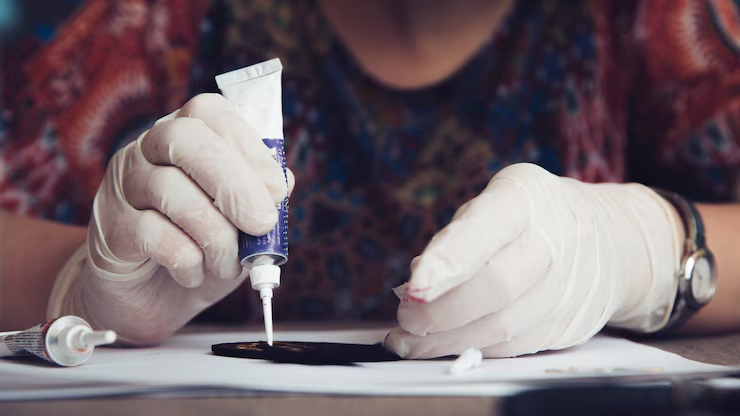Tattoos are a form of self-expression and art that many people choose to adorn their bodies with. However, getting a tattoo is just the beginning; proper aftercare is essential to ensure that your new ink heals correctly and maintains its vibrancy. One of the most important aspects of tattoo aftercare is using the right cream. In this comprehensive guide, we will explore everything you need to know about tattoo aftercare cream, from why it’s important to how to choose the best one for your needs.
Why Is Tattoo Aftercare Cream Important?
When you get a tattoo, your skin is essentially being punctured thousands of times with a needle, which can cause trauma to the skin. This trauma can lead to inflammation, redness, and even infection if not properly cared for. Tattoo aftercare cream plays a crucial role in the healing process by providing the following benefits:
- Moisturization
Tattooed skin needs to stay hydrated to heal properly. Dry skin can lead to scabbing and cracking, which can cause your tattoo to fade or lose its vibrancy. A good aftercare cream will lock in moisture and keep your skin soft and supple.
- Protection
Aftercare creams create a barrier between your tattoo and the outside world, protecting it from bacteria and other potential irritants. This barrier helps prevent infection and speeds up the healing process.
- Reducing Inflammation
Many aftercare creams contain ingredients that have anti-inflammatory properties. These ingredients can help reduce redness and swelling, making the healing process more comfortable.
- Promoting Healing
Certain ingredients in aftercare creams can promote faster healing. For example, some creams contain vitamins and antioxidants that support skin regeneration.
What to Look for in a Tattoo Aftercare Cream
With so many tattoo aftercare creams on the market, it can be overwhelming to choose the right one. Here are some key factors to consider:
- Ingredients
Choose a cream with natural, non-irritating ingredients. Look for products that contain shea butter, coconut oil, aloe vera, and other soothing ingredients. Avoid creams with artificial fragrances, dyes, or preservatives, as these can irritate your skin.
- Fragrance-Free
Scented products can be irritating to sensitive skin, especially during the healing process. Opt for a fragrance-free cream to minimize the risk of irritation.
- SPF
Sun exposure can cause your tattoo to fade over time. Some aftercare creams come with SPF, which can help protect your tattoo from UV damage.
- Hygienic Packaging
Choose a cream that comes in a pump bottle or a squeezable tube. This type of packaging helps prevent contamination, which is especially important during the healing process.
Top-Rated Tattoo Aftercare Creams
- Hustle Butter Deluxe Luxury Tattoo Care & Maintenance Cream
Hustle Butter is a popular choice among tattoo enthusiasts. It is made with natural ingredients like shea butter, mango butter, and coconut oil, which provide deep hydration and promote healing. It absorbs easily and helps reduce flakiness.
- Aquaphor Healing Ointment
Aquaphor is another highly recommended product. Its formula contains petrolatum, which locks in moisture and provides a protective barrier. It is fragrance-free and suitable for all skin types.
- Vanicream Moisturizing Ointment
Vanicream is a favorite among dermatologists due to its fragrance-free and hypoallergenic formula. It contains microcrystalline wax and dimethicone, which seal the skin and allow it to heal.
- Mad Rabbit Tattoo X Atelier Eva Soothing Gel
This gel has a cooling, calming sensation and contains aloe vera, glycerin, and argan oil. It is particularly effective at keeping tattoos vibrant and shiny.
- After Inked Tattoo Moisturizer Cream
After Inked is a natural, petroleum-free cream that hydrates the skin and enhances tattoo vibrance. It contains grapeseed oil and glycerin, making it suitable for all skin types.
How to Use Tattoo Aftercare Cream
Proper application of tattoo aftercare cream is crucial for effective healing. Here are some steps to follow:
- Clean Your Tattoo: Gently wash your tattoo with a mild, fragrance-free soap and warm water. Pat it dry with a clean paper towel.
- Apply a Thin Layer: Apply a thin layer of aftercare cream to the tattooed area. Too much cream can cause your tattoo to become too moist, which can delay healing.
- Repeat Regularly: Apply the cream two to three times a day until your tattoo is fully healed. This usually takes about two to four weeks.
Conclusion
Taking care of your new tattoo is essential to ensure it heals properly and maintains its vibrancy. Choosing the right tattoo aftercare cream is a crucial part of this process. By considering factors like ingredients, fragrance, and packaging, you can select a cream that will provide the best possible care for your tattoo. Whether you choose a natural balm like Hustle Butter or a fragrance-free ointment like Aquaphor, the key is to keep your skin moisturized and protected throughout the healing process.
FAQ
- What is the best product for healing tattoos?
Aquaphor is highly recommended by tattoo artists and dermatologists for its soothing and moisturizing properties.
- How long after a tattoo should I apply cream?
You can apply cream after removing the bandage, which is usually around three hours after getting the tattoo. However, always follow your tattoo artist’s specific instructions.
- Can I use regular lotion on my tattoo?
It’s best to use a specialized tattoo aftercare cream during the initial healing process. Regular lotions may not provide the same level of protection and hydration.
- How long does it take for a tattoo to heal?
Most tattoos take about two to four weeks to heal completely. However, this can vary depending on the size and location of the tattoo.
- What should I avoid after getting a tattoo?
Avoid submerging your tattoo in water, exposing it to direct sunlight, and using harsh scrubs or exfoliating products. Also, avoid wearing tight clothing that can rub against the tattoo.
